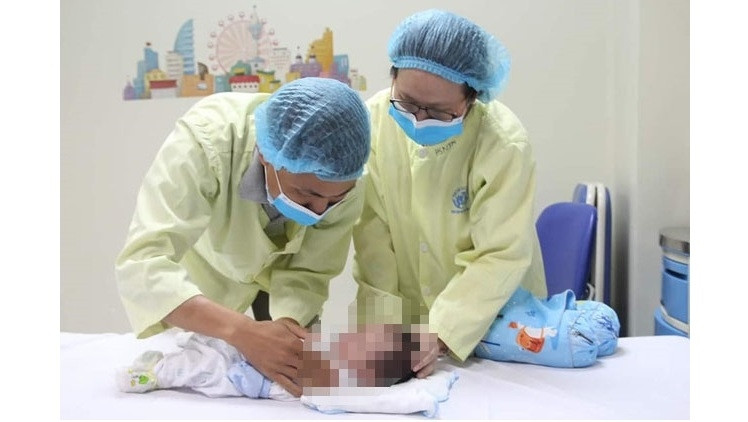Compared with its peers in a group of 36 children's hospitals around the world, in 2019, the Vietnamese centre made major strides in paediatric heart surgeries, including in operations on complicated heart disease patients with low weight, thereby minimising its lowest mortality rate.
A surgery summary in 2019 based on the database from the International Quality Improvement Collaborative (IQIC) – a partnership between Boston Children’s Hospital, Harvard Medical School and a number of units – showed that the Children Heart Centre under the Vietnam National Hospital of Paediatrics conducted 1,176 surgeries. Of these, 13.6% were on new-borns, 60% on infants to one-year-old babies, and 26.4% on babies and children from 1-17 years old.
The mortality rate in the Vietnamese centre was 2.5%, lower than the average of 5.7%. The mortality rate within 30 days of treatment after surgery was 3%.
In particular, the average weight of children with congenital heart disease operated upon there was 5.4 kg, nearly half that of the average weight in this group, at 10 kg.
Regarding the classification of patients according to the Risk Adjustment for Congenital Heart Surgery (RACHS), the centre performed 14.4% of operations at level I, 43.4% at level II, 31.2% at level III, 7.4% at level IV and 1% at level V-VI.
The proportion of paediatric patients undergoing severe and complex surgeries at the centre was higher in this group of 36 children's hospitals (the rates of the general group were: at level III: 23.9%; IV: 5% and V-VI: 0.6%, respectively).
Dr. Nguyen Ly Thinh Truong, the centre’s director, said that its success comes from the efforts and unanimity of all medical staff in the centre, as well as the maximum support and assistance of the hospital's Board of Directors and other departments in the hospital.
















